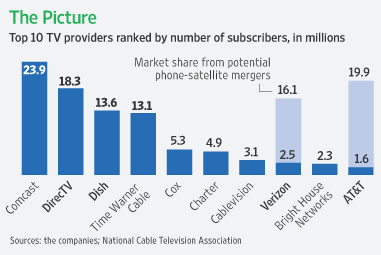 Just like FairPoint Communications, the Towering Inferno of phone companies haunting New England, Frontier Communications is making a whole lot of promises to state regulators and consumers, if they’ll only support the deal to transfer ownership of phone service from Verizon to them.
Just like FairPoint Communications, the Towering Inferno of phone companies haunting New England, Frontier Communications is making a whole lot of promises to state regulators and consumers, if they’ll only support the deal to transfer ownership of phone service from Verizon to them.
This time, Frontier is issuing a self-serving press release touting their investment of some $4 million dollars in its broadband networks in Charles Town and Princeton, West Virginia. But the best part was the claim the upgrades would “offer customers fast broadband speeds and near-unlimited bandwidth capacity.”
In Princeton, 44 miles of fiber-optic cable will connect all Frontier High-Speed Internet (HSI) equipment to the exchange`s main switch, and 37 additional miles of fiber cable are being installed in the Charles Town exchange. These upgrades will allow Residential HSI speeds of up to 6 Meg and Business HSI speeds of up to 12 Meg. The upgrades will allow provisioning of Metro Ethernet service of up to 100 Meg, resulting in very high data speeds for private networks among multiple business locations.
These upgrades are all well and good, and are perhaps more than urban-focused Verizon was willing to do in the state, but before West Virginians get too excited by the words “fiber cable” and “near-unlimited bandwidth capacity,” it might be wise to consider the implications of transferring an entire state’s telephone business to a company that still insists on defining an “appropriate amount of usage” on that near-unlimited network at a piddly 5GB per month.
The company also promoted their “computer giveaway” program:
Recognizing that the lack of a personal computer is a barrier for many families, since 2006 Frontier has provided more than 10,000 free computers to qualifying customers in West Virginia. A large percentage of the computers went to first time computer households, who also benefited from free on-site installation.
To the uninitiated, that may suggest a benevolent phone company handing out free computers to the needy with no strings attached. In fact, this was a Frontier customer acquisition promotion. Customers signing up for a bundle of telephone and broadband and/or satellite service could qualify for a free basic Dell Netbook (valued at under $400), if they are in good standing with the company, agree to a “price protection agreement” holding them to the company for two years (or facing a nasty early termination fee running several hundred dollars), and also pay a handling fee:
Customer pays handling charges and taxes totaling $45. Customers must subscribe to a new package of Frontier residential local service with features, Unlimited Nationwide or Statewide Long Distance voice-calling and qualifying High-Speed Internet service. Requires a two-year Price Protection Plan on Frontier services (excludes satellite TV) with a $300 early termination fee. Offer available while supplies last. Frontier reserves the right to substitute a comparable Mini Laptop. Other offers available for existing High-Speed Internet customers. Applicable taxes and surcharges apply. Electronic or other written contract signature for Frontier services is required. Some Frontier services are subject to availability. Installation charges may apply. Unlimited U.S. Long Distance minutes are for residential voice usage and exclude 900, international, directory assistance and dial-up Internet calls.
For a whole lot of West Virginia, broadband service means one thing – DSL from the phone company. Satellite broadband is costly, capped, and has terrible customer satisfaction ratings. Cable television is a dream for significant parts of the mountainous state. Do West Virginians want to risk their broadband future on a company that insists on an Acceptable Use Policy with a 5GB usage limit in it?
Residents of Rochester, New York know Frontier Communications all too well. They’ve been our local telephone company since being absorbed by Citizens Communications after the colossal downfall of Global Crossing, which took ownership of the formerly independent Rochester Telephone Corporation.
Don’t let dreams of fiber dance too much in your head. Frontier routinely installs fiber, but only between their central offices and remote equipment that helps reduce the distance between telephone switch equipment and the copper wiring out on the telephone poles. It does help provide the potential of speed increases for DSL service by reducing the length of copper wire DSL travels on, but by no means should imply West Virginia will see fiber to the home in their near future.
If Frontier Communications lacks the means and the will to wire New York’s second largest economy and third largest metropolitan area with more than 1,000,000 residents with fiber to the home, don’t think for a moment they’re going to be any hurry to light up the state of West Virginia.
Indeed, for many residents of the Flower City, the bloom is well off Frontier’s rose, trapping this community in a broadband backwater with a telephone company unwilling and/or unable to provide the kind of 21st century broadband service that is presently being provided in several other upstate cities as Verizon installs its FiOS fiber network. For Rochester, and for too many other cities, the broadband superhighway from the phone company has little more than tumbleweeds blowing across.
This site was founded last year when Frontier introduced its 5GB usage cap, and we coordinated a consumer response which forced the company to pull back from its enforcement. But the threat still looms over the heads of their customers from coast to coast as long as it remains a part of their Acceptable Use Policy.
The time has come for Frontier to banish the 5GB language from its Acceptable Use Policy once and for all and stop toying with Internet Overcharging schemes altogether, especially as it seeks to bring the threat of those schemes to millions of Americans that may find their only realistic broadband option coming from this provider. Otherwise, it’s time for consumers to get on the phones and tell their elected officials and public utility commissions how they feel about getting broadband service from a phone company that tells them:
Frontier may suspend, terminate or apply additional charges to the Service if such usage exceeds a reasonable amount of usage. A reasonable amount of usage is defined as 5GB combined upload and download consumption during the course of a 30-day billing period. The Company has made no decision about potential charges for monthly usage in excess of 5GB.


 Subscribe
Subscribe



